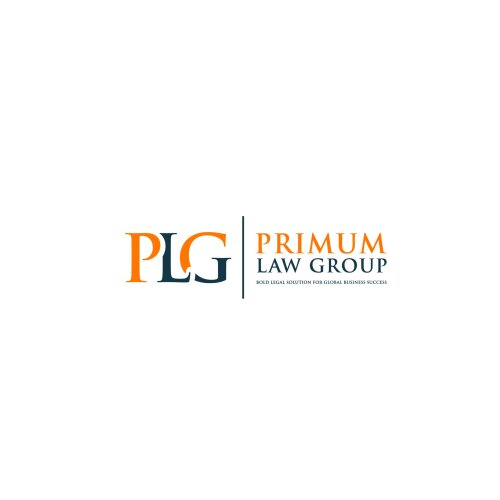Best Media and Entertainment Lawyers in United States
Share your needs with us, get contacted by law firms.
Free. Takes 2 min.
Or refine your search by selecting a city:
List of the best lawyers in United States
About Media and Entertainment Law in United States
Media and Entertainment Law in the United States encompasses a wide array of legal disciplines tailored to meet the demands of the sophisticated and fast-paced entertainment industry. This law area addresses issues concerning film, television, music, theater, publishing, advertising, internet, and other forms of media. It covers a range of legal topics such as intellectual property rights, contract negotiations, copyright and trademark disputes, and media regulations.
The United States has long been a global leader in the entertainment industry, particularly with Hollywood as the epicenter of film production and innovation. With the advent of digital media, new challenges and opportunities continue to evolve, requiring specialized legal expertise to navigate its complex landscape.
Why You May Need a Lawyer
Numerous situations may require you to seek legal assistance in the field of Media and Entertainment. Here are a few common scenarios:
- Contract Negotiations: Whether you're an artist, producer, or studio executive, negotiating contracts is a fundamental aspect of the industry to ensure fair terms and protect your rights.
- Intellectual Property Protection: Protecting your creations through copyright, trademark, or patents is crucial and often requires legal assistance to prevent unauthorized use or infringement.
- Licensing Agreements: Granting or obtaining the rights to use music, film clips, or other creative content can be intricate and require legal guidance.
- Defamation and Privacy Issues: In the media realm, reputational harm or privacy breaches can occur, necessitating legal intervention to resolve disputes.
- Employment and Labor Issues: From talent agreements to crew contracts, ensuring that employment terms are fair and lawful is vital.
- Dispute Resolution: Navigating conflicts through litigation or alternative dispute resolution methods often involves legal strategy.
Local Laws Overview
While federal laws provide a broad framework, certain local statutes are particularly relevant to the media and entertainment industry in the U.S. Here are key legal aspects to consider:
- Copyright Law: Governed by federal law, copyrights protect creative works and give creators exclusive rights to use and distribute their work.
- Trademark Law: Protects brand names, slogans, and logos to prevent consumer confusion and ensure brand integrity.
- Right of Publicity: State laws vary, but generally protect individuals from unauthorized commercial use of their name, image, or likeness.
- Defamation: Laws protect individuals and entities from false statements that may harm their reputation.
- State-Specific Regulations: States like California and New York have specific regulations affecting the entertainment industry, such as labor laws for minors in entertainment.
Frequently Asked Questions
What is the role of an entertainment lawyer?
An entertainment lawyer assists clients on legal matters related to media and entertainment, including contract negotiations, intellectual property protection, and resolving disputes.
How can I protect my creative work?
Protect your creative work through copyright registrations for original works, acquiring trademarks for brand identifiers, and considering patents for unique inventions.
What should I look for in an entertainment contract?
Look for clear terms on compensation, rights granted, duration, termination clauses, and any obligations or warranties.
Can I use a celebrity's image in my project?
Using a celebrity's image for commercial purposes without permission can violate their right of publicity, which varies by state.
What happens if my work is infringed upon?
If your work is infringed, you may issue a cease-and-desist letter, seek a settlement, or pursue legal action to enforce your rights.
What are the differences between copyright and trademark?
Copyright protects original expressive works, while trademarks protect symbols, names, and slogans used to identify goods or services.
How do royalties work in entertainment agreements?
Royalties are compensation paid to rights holders based on the revenue generated from the use or sale of their work.
What legal issues can arise in digital media?
Issues include digital rights management, privacy concerns, data protection, and online content sharing disputes.
Do I need legal advice for self-publishing a book?
Yes, especially for contract reviews, copyright issues, and understanding distribution rights and royalties.
How can I resolve a contract dispute in the entertainment industry?
Contract disputes can be resolved through negotiation, mediation, arbitration, or litigation, depending on the terms and context.
Additional Resources
Consider contacting the following resources for further assistance:
- American Bar Association (ABA): Offers resources and directories for finding specialized legal counsel.
- State Bar Associations: Provide directories and resources specific to legal practitioners in your state.
- Library of Congress Copyright Office: For registering your works and understanding copyright laws.
- U.S. Patent and Trademark Office (USPTO): Offers guidance on trademarks and patents.
- California Lawyers for the Arts: Offers educational programs and legal referral services for artists.
Next Steps
If you find yourself needing legal assistance in media and entertainment, consider the following steps:
- Identify the specific legal issues or areas where you need assistance.
- Research potential lawyers or law firms specializing in media and entertainment law.
- Consult initial with a few attorneys to discuss your situation and gain insights into their approach and experience.
- Gather relevant documents and information to present during your legal consultations.
- Consider cost and budget, keeping in mind that different services may have varying fee structures.
- Choose a lawyer who aligns with your needs and with whom you feel comfortable working.
Taking these steps can help you navigate the legal aspects of the media and entertainment industry with greater confidence.
Lawzana helps you find the best lawyers and law firms in United States through a curated and pre-screened list of qualified legal professionals. Our platform offers rankings and detailed profiles of attorneys and law firms, allowing you to compare based on practice areas, including Media and Entertainment, experience, and client feedback.
Each profile includes a description of the firm's areas of practice, client reviews, team members and partners, year of establishment, spoken languages, office locations, contact information, social media presence, and any published articles or resources. Most firms on our platform speak English and are experienced in both local and international legal matters.
Get a quote from top-rated law firms in United States — quickly, securely, and without unnecessary hassle.
Disclaimer:
The information provided on this page is for general informational purposes only and does not constitute legal advice. While we strive to ensure the accuracy and relevance of the content, legal information may change over time, and interpretations of the law can vary. You should always consult with a qualified legal professional for advice specific to your situation.
We disclaim all liability for actions taken or not taken based on the content of this page. If you believe any information is incorrect or outdated, please contact us, and we will review and update it where appropriate.
Browse media and entertainment law firms by state in United States
Refine your search by selecting a state.











